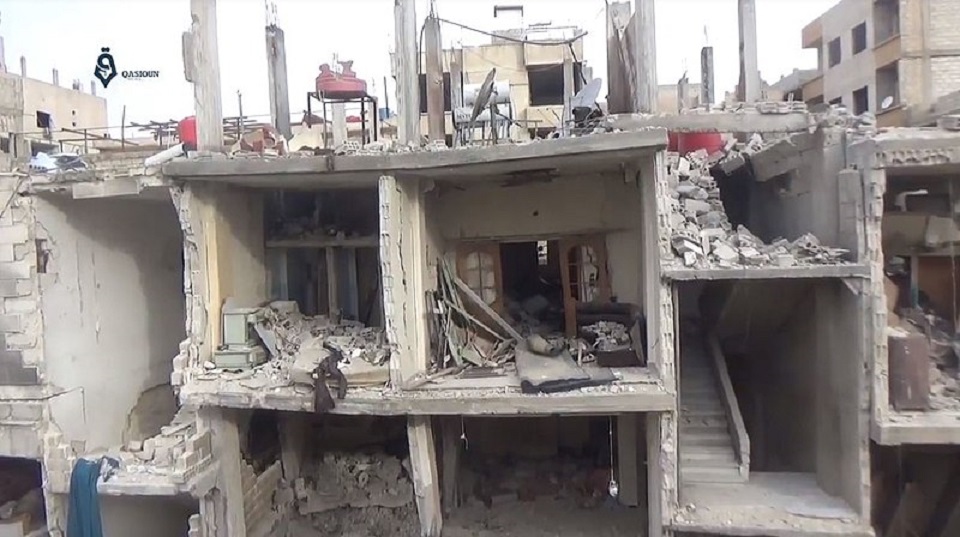
SRT grantees celebrates victory as France issues international arrest warrant for Syria’s Bashar al-Assad
SRT grantee partners Mnemonic, (host organisation of Syrian Archive programme), and the Human Rights Center at the University of Berkeley were among those celebrating as a French court issued an international arrest warrant for the Syrian leader Bashar al-Assad for complicity in war crimes and crimes against humanity. His brother Maher al-Assad and two other senior officials were also issued with arrest warrants over the use of banned chemical weapons in attacks on civilians in 2013 in Ghouta, Syria. The attacks using sarin gas killed over 1,000 people, including hundreds of children.
Syrian Archive (now a project of Mnemonic), along with Syrian Center for Media and Freedom of Expression (SCM), and the Open Society Justice Initiative, instigated the investigation by filing a legal complaint under the principle of universal jurisdiction. Hadi al-Khatib, founder of Syrian Archive, and Managing Director of Mnemonic noted that: “France is taking a firm stand that the horrific crimes that happened 10 years ago cannot and will not be left unaccounted for. We see France, and hopefully other countries soon, taking the strong evidence that we have gathered over years and finally demanding criminal responsibility from the highest-level officials.”

Bashar al-Assad 2022 © leader.ir / Creative Commons
The case was supported by the Human Rights Center at the University of Berkeley, whose student researchers used open-source investigation methods to help build the evidentiary dossier.
While the International Criminal Court has issued two arrest warrants against heads of state, lawyers noted that this was the first time a sitting head-of-state has been the subject of an arrest warrant of another country.
The Syrian civil war broke out when government forces cracked down on pro-democracy marches during the 2011 Arab Spring. In March 2023, the Syrian Observatory for Human Rights estimated as many as 614,000 people have been killed in fighting over the last 12 years. The Syrian government has denied using chemical weapons but a previous joint inquiry of the United Nations and the Organisation for the Prohibition of Chemical Weapons found that they used the nerve agent sarin in a 2017 attack and that they repeatedly used chlorine and mustard gas against civilians. The Syrian government has always claimed foreign fighters and their international backers were responsible for the Ghouta attacks.
Mnemonic was founded in 2018 to help human rights defenders effectively use digital documentation of human rights violations and international crimes to support advocacy, justice and accountability. The organisation grew out of the Syrian Archive, a project born in 2014 to support local Syrian documenters to preserve and analyse digital content related to human rights violations committed during the conflict and enable its use for legal accountability. Syrian Archive closely collaborates with the Security Force Monitor (SFM) in identifying the chain of command, which was particularly important in this case.
Return to grantee stories
